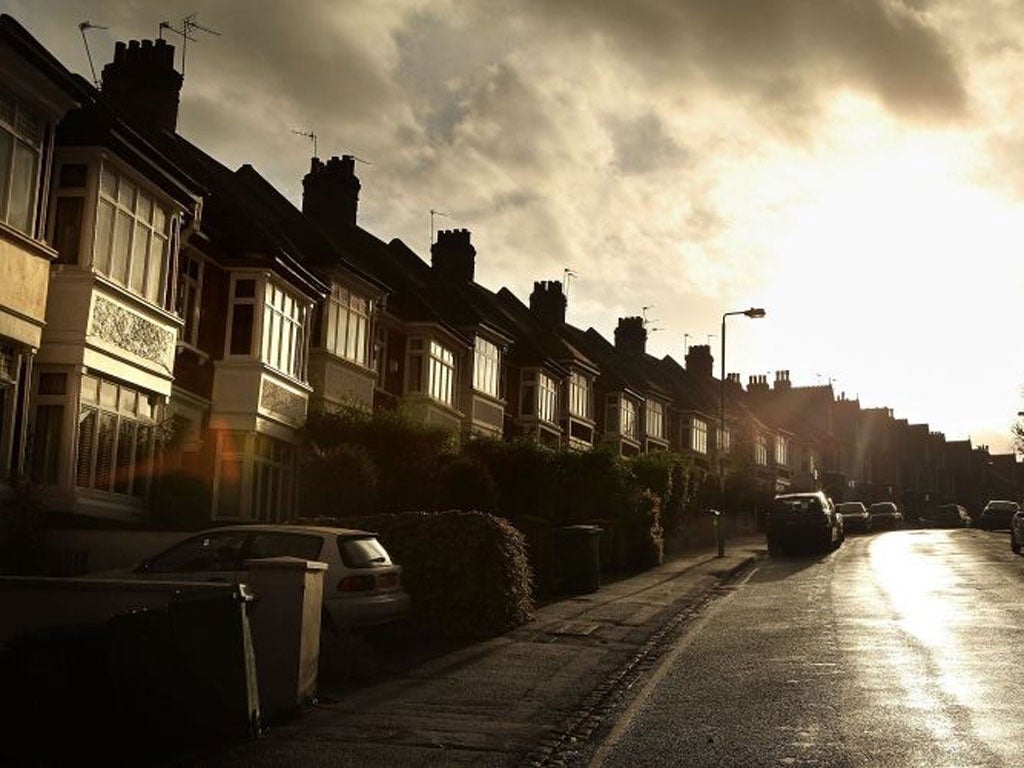
Your support helps us to tell the story
From reproductive rights to climate change to Big Tech, The Independent is on the ground when the story is developing. Whether it's investigating the financials of Elon Musk's pro-Trump PAC or producing our latest documentary, 'The A Word', which shines a light on the American women fighting for reproductive rights, we know how important it is to parse out the facts from the messaging.
At such a critical moment in US history, we need reporters on the ground. Your donation allows us to keep sending journalists to speak to both sides of the story.
The Independent is trusted by Americans across the entire political spectrum. And unlike many other quality news outlets, we choose not to lock Americans out of our reporting and analysis with paywalls. We believe quality journalism should be available to everyone, paid for by those who can afford it.
Your support makes all the difference.Britons reduced their mortgage debt by £9.8 billion in the second quarter of this year as the housing market remained subdued, Bank of England figures showed today.
The study indicates that households are putting more money into the housing market, through mortgage repayments for example, than they are taking out.
However, the Bank said there was "little sign" that households are trying to pay down debt more quickly than in the past, and a lack of activity in the housing market and a reduction in re-mortgaging are underlying the figures.
There has been a general trend towards injections of housing equity since the start of the financial crisis, with a reduction of £9.6 billion in mortgage debt in the first quarter of this year.
Howard Archer, chief UK and European economist for IHS Global Insight, pointed out that the latest figure is creeping back up towards a record £10.2 billion housing equity injection seen in spring 2011 and there have now been net injections of equity for 17 quarters in a row.
This has brought the cumulative net injection of equity into houses to £133.2 billion since the second quarter of 2008.
Dr Archer questioned the Bank's analysis that there was little sign that families are generally making an active effort to pay down their mortgage debts more quickly.
He said: "Extremely low savings interest rates have undeniably made it much more attractive for many people to use any spare funds that they have to reduce their mortgages.
"In particular, many people may be using the extra money that is resulting from their very low mortgage interest payments to reduce the balance that they still owe on their houses."
The latest figures were released on the same day that a few hundred thousand Santander customers saw their mortgage costs increase, as the lender hiked its standard variable rate, resulting in an average increase of £312 a year for a typical £100,000 mortgage.
More than a million home owners saw their mortgage rates increase in May as lenders such as Halifax, the Co-operative Bank and Clydesdale and Yorkshire Banks raised their SVR rates, even though the Bank of England base rate remained at a historic 0.5% low.
The Bank of England and the Treasury introduced an £80 billion funding for lending scheme at the start of August to help kickstart lending to households and businesses.
Lenders have said this has already caused mortgage availability to increase, although they have also tightened their borrowing criteria in recent months, meaning people have higher hurdles to jump in order to take out a deal.
Figures recently released by the British Bankers' Association (BBA) showed that mortgage approvals for house purchases were 13% lower than a year ago in August.
The BBA said that consumers are continuing to act "conservatively" in the weak economic environment, by paying down their debts and building up their savings.
Total mortgage approvals have been creeping back up from a low point in June, which saw the smallest number of approvals the BBA had in its records, which stretch back to 1997.
PA
Join our commenting forum
Join thought-provoking conversations, follow other Independent readers and see their replies
Comments